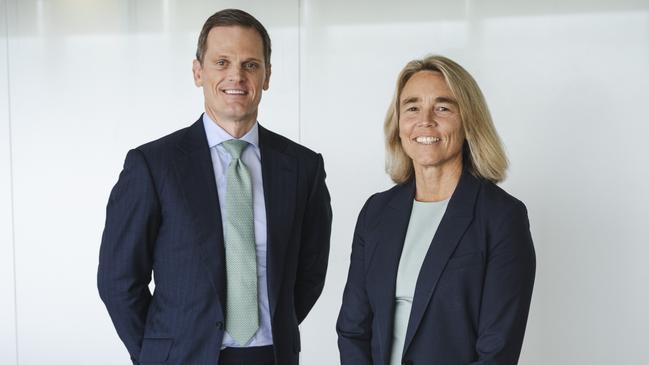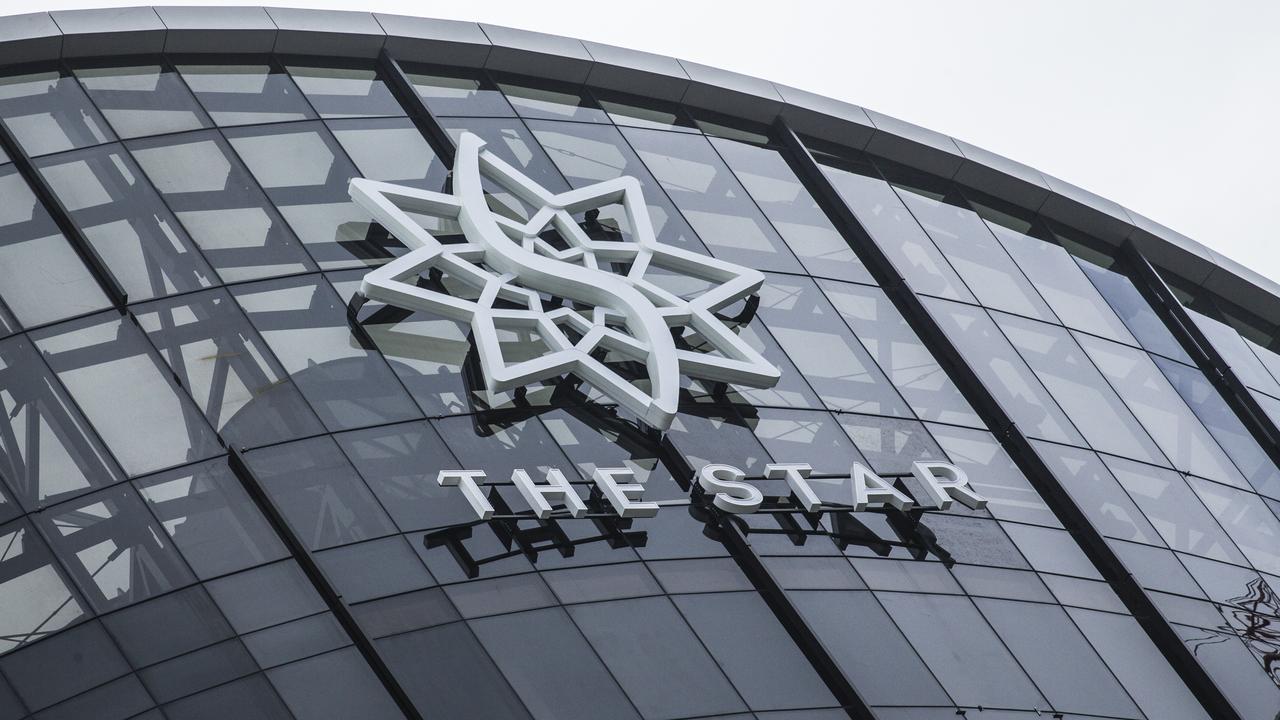
More big Australian corporations reshaping their portfolios and private equity firms taking floats more seriously as an investment exit option are two of the themes high-profile deal-makers at Jarden Group expect to see in 2025.
Sarah Rennie and Aidan Allen have been in the top seats at the trans-Tasman investment banking and advisory firm for 18 months as co-chief executives and they have a razor-sharp focus on gaining more share of the Australia and New Zealand equity capital markets deal advisory market.
But not at any cost.
“Although ECM volume is up 30 per cent, a lot of the ECM activity is blocks, which have been lower margin in the ECM context,” Mr Allen told The Weekend Australian.
“As we have seen, a lot of banks have been bidding blocks, trying to lift up their market share.”
Mr Allen was referring to major selldowns by investors in big stocks in one big hit. That has dominated most of the ECM activity in 2024, when there have been few initial public offerings or equity raisings, which are a more lucrative line of work.
Sidara’s exit out of Worley earlier in 2024 and China Investment Corp’s selldown from industrial property and data centre giant Goodman are two of the year’s largest deals in the context of the overall amount of money changing hands.
But while block trades seem large and dramatic, the fees are small compared with other ECM activity, and winning the roles is fiercely competitive for little gain.
Mr Allen pointed to the evidence in the Dealogic league table for 2024. The table has JPMorgan on top for ANZ ECM activity after it advised on some exits for shareholders in Fortescue and APA Group, although it was one of 13 brokers advising on the IPO of HMC Capital’s $2bn-plus DigiCo Infrastructure REIT IPO as well.
But despite topping the table, with the largest share of deal value at $4.5bn, JPMorgan’s fees were $14.8m. Compare that with Goldman Sachs in No.2 with $40m of fees; or Jarden Group, which came in at No.5 spot with $36.6m; Macquarie, which was No.6 but earned $54.5m; and then Canaccord, known for embarking on a larger number of smaller equity raisings for miners in Western Australia, with $74m.
“The ECM wallet has been lower because there is a lot more focus on blocks and people bidding for market share. As a result, league tables look quite different.”
More broadly, though, Mr Allen said the ECM market in Australia next year would be quite a different story.
His co-CEO, Ms Rennie, agreed this would be the case. “The IPO market has not yet returned in the way we hoped but the supply pressure continues to build,” she said. “With market valuations trading above long-term averages and the macro environment continuing to improve, we are optimistic that IPO activity will return next year.”
Her view is that there are several high-quality assets, particularly in the hands of private equity, that have been long anticipated. “We think (they) will be well received if they decide to come to market.”
Previously, private equity firms have run sale processes of assets and opted to hold on longer if bidders do not offer the right price. But the time horizons for their ownership were coming to an end, and with time running out, more would consider dual-track processes for 2025 where a sale would compete with a float on price.
This could include opportunities such as pet care business Greencross, Ticketek owner TEG, New Zealand online market place Trademe and diagnostic imaging company I-Med.
And a big draw card for private equity when it comes to IPO exits is timetable certainty.
One of the big deals Jarden is looking to take to the market by way of a dual-track process is Fonterra’s $2bn branded ANZ dairy products business, renamed Fonterra Oceania.
With Bega the only major listed opportunity for investment in the space in Australia, the advisory firm has high hopes it will be well received, and expects to benefit from the appeal of the business to retail investors.
“We will capitalise on retail, but it needs to be structured in the right way,” Mr Allen said, adding such opportunities needed to be set at the right price with the right yield.
Not only does Jarden hope to capitalise on its bench strength with ECM expertise but also its dominance across the Tasman. A strong presence in both markets has paid off for Jarden in the past year, gaining lucrative assignments such as an advisory role on an emergency equity raising for Fletcher Building, a raise for the Australian-listed Auckland Airport that needed capital for infrastructure spending and winning the mandate for the Fonterra dual-track process set for 2025.
“The way the Australian business has worked together has been really good and we have benefited for that,” Mr Allen said. He said there also were more big deals to come in New Zealand, as the market picked up with stocks starting to rally and corporations more comfortable with their valuations, and groups starting to raise cash for investment once again for restocking.
New Zealand was at least six to 12 months ahead of Australia in terms of the macro cycle, he said.
“I think the investment settings in New Zealand have been really bad,” Mr Allen said.
“People have been concerned about economic performance. There has been a lot of friction in the economy, regulation has made it really hard, industrial relations have been really hard.
“The new government in New Zealand is making a strong showing of taking some of those restrictions off the table and I think we have seen business respond really strongly to it.”
He said there would be more corporates looking to reshape portfolios, not just in New Zealand but also in Australia.
In Australia, the other part of the market where Jarden expects to see more activity in 2025 is with real estate investment trusts, a part of the market that has been subdued in the past two years.
The bank recently hired Tim Leahy to take on a newly created role of real assets sales and corporate broking within its equities division.
While Jarden has been busy in the past two years raising private capital, with clients including Mirvac Group, Logos and Stockland, the expectation is that the raising of capital will shift back to the public market.
“When the interest rate cycle moves, then these REITS start to trade at premiums to their NTA (net tangible assets), and then it is game on.”



